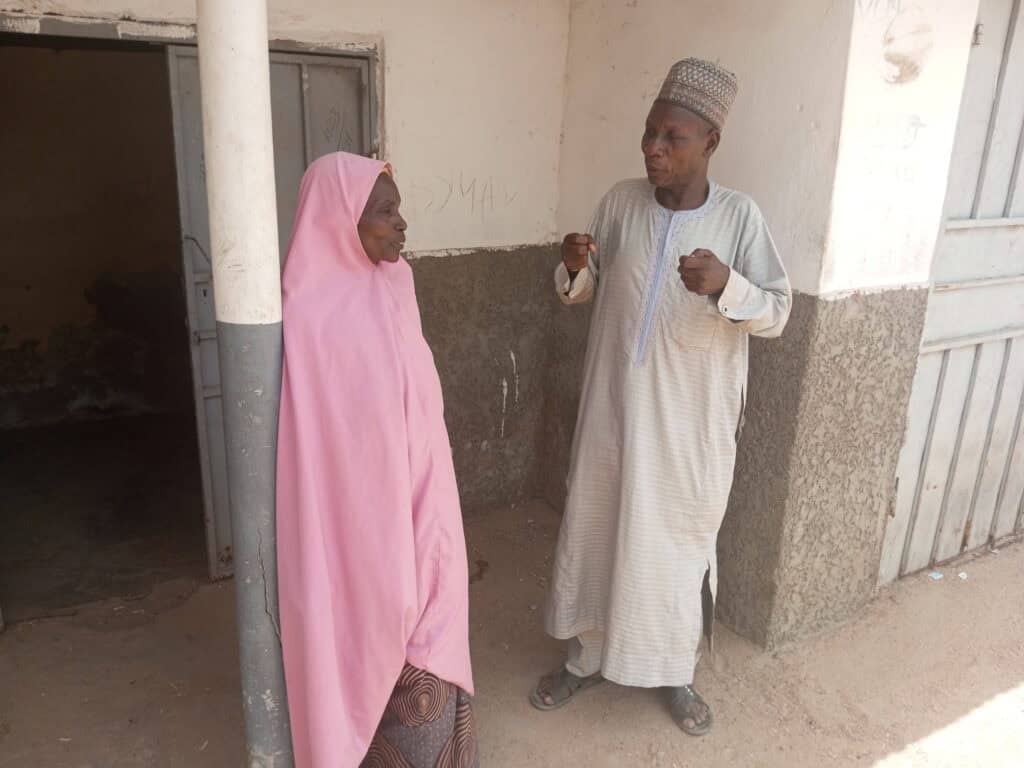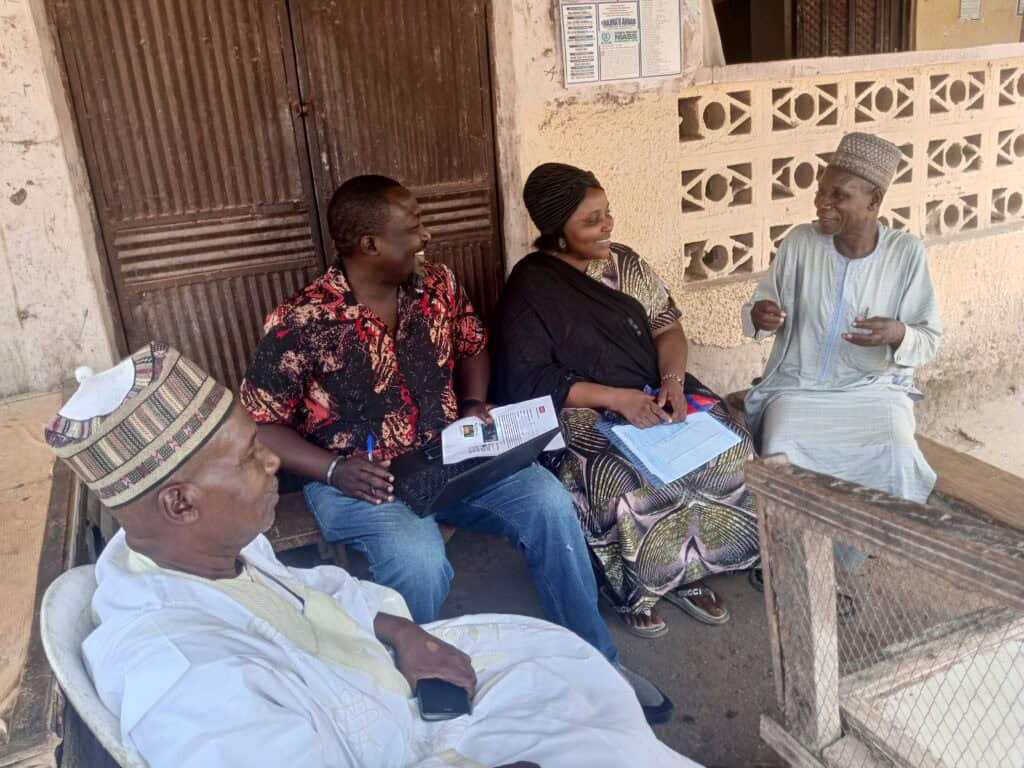Grassroots Mobilization Supports an End to Cervical Cancer in Nigeria
story
Saidu Kwamandi (second from right) joins an immunization team as they head to a local school to ensure every eligible girl receives the HPV vaccine. Credit: Kannah Terri Ibrahim, JSI
“If I don’t protect my own, how can I ask others to do the same?”
That question fuels Saidu Kwamandi’s relentless effort to transform health care access in his Nigerian community, one home, one school, and one family at a time. When the human papillomavirus (HPV) vaccine was introduced in Nigeria to protect girls against cervical cancer, fear and misinformation swept through Saidu’s community. When Saidu heard that an Islamic school teacher, responsible for 14 girls ages 9 to 14, refused to allow them to be vaccinated, he didn’t argue. He acted!
As the village head of Tudin Wada Central and the long-serving secretary of the Ward Development Committee (WDC), Saidu knew how to mobilize influence and partnerships. He reached out to religious leaders, traditional leaders, and the Primary Health Care (PHC) team. He built a coalition rooted in trust, respect, and shared responsibility. And he won. Those 14 girls received the vaccine and a better chance at a healthy future.
But Saidu didn’t stop there. A farmer by trade and father to 17 children—five of whom are eligible and vaccinated against HPV—he has taken the message far beyond that school. From home to home, market stalls to mosques and churches, schools to gathering spots, Saidu moves through his community with his youngest vaccinated daughter by his side, leading by example, challenging myths, and calming fears. “People believe what they see. When they see my daughter strong and well, they begin to trust the vaccine,” Saidu says.

Saidu Kwamandi (right) engages with a caregiver in his community about the HPV vaccine. Credit: Kannah Terri Ibrahim, JSI
Through the WDC—Nigeria’s grassroots health structure that connects communities to the formal health system—Saidu leads community dialogues, supports health workers, engages school heads, and persuades hesitant parents. He ensures that no public health intervention enters his community without community voices at the table.
Today, more than 800 girls in his community have received the HPV vaccine, thanks in large part to his advocacy and grassroots mobilization strategy.

Saidu Kwamandi (right) engages with JSI and partners to explore strategies for improving HPV vaccine uptake in his community. Credit: JSI
Saidu is one of the many local champions contributing to the HPV Vaccine Acceleration Program Partners Initiative (HAPPI), funded by the Gates Foundation and implemented in Nigeria by JSI and CHAI in collaboration with the National Primary Health Care Development Agency. Together, they’ve helped reach over 12 million girls across the country with the HPV vaccine.
For Saidu, advocating for the vaccine is advocating for Nigeria’s girls. “We want our girls to grow strong. To live long. To be free of diseases we can prevent. That’s why I do this.” And that’s why, even in the face of doubt, he will keep walking, talking, and showing up—until every girl is protected.
We strive to build lasting relationships to produce better health and education outcomes for all.